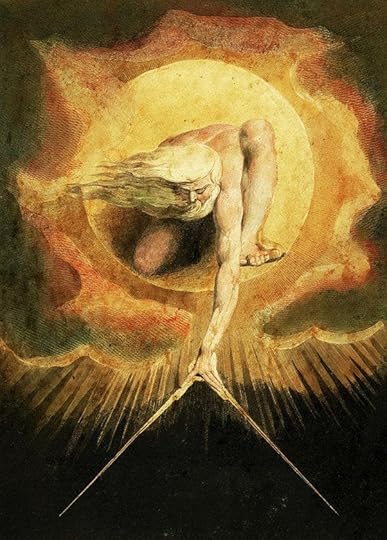Weekend read: Michael R. Burch, ‘Modern Orpheus, or, William Blake’s Whistle’

I.
Many a sun
and many a moon
I walked the earth
and whistled a tune.
I did not whistle
as I worked:
the whistle was my work.
I shirked
nothing I saw
and made a rhyme
to children at play
and hard time.
II.
Among the prisoners
I saw
the leaden manacles
of Law,
the heavy ball and chain,
the quirt.
And yet I whistled
at my work.
III.
Among the children’s
daisy faces
and in the women’s
frowsy laces,
I saw redemption,
and I smiled.
Satanic millers,
unbeguiled,
were swayed by neither girl,
nor child,
nor any God of Love.
Yet mild
I whistled at my work,
and Song
broke out,
ere long.
******
Michael R. Burch writes: “W. H. Auden famously (or infamously) said “poetry makes nothing happen.” I sympathize with his sentiment but beg to differ. William Blake has been a profound influence on modern culture and societies, not only through his own poetry, art and engravings, but also through his influence on singer-songwriters like Bob Dylan, John Lennon and Jim Morrison. When Dylan met the Beatles the first time, things were a bit cool at first, until Allen Ginsberg broke the ice by bringing up Blake. It turned out that everyone in the room was a fan. Morrison named his group the Doors after Blake’s ‘Doors of Perception’.
“William Blake has been a primary influence on my work, not only as a poet, but also as a translator, editor and publisher of poems about the Holocaust, the Palestinian Nakba, the Trail of Tears, and other similar instances of Blake’s three-headed hydra of church, state and industry doing its worst to make life on earth hell.
‘A Passing Observation about Thinking Outside the Box’ by Michael R. Burch
William Blake had no public, and yet he’s still read.
His critics are dead.
“William Blake was not an “art for the sake of art” adherent. Quite the contrary. Blake was an ardent reformer. For instance, he and Charles Dickens, who from what I understand lived on the same London street or nearby, wrote movingly about the plight of child chimneysweeps and other minors forced to work long, gruelling, sometimes dangerous, hours by unscrupulous businessmen, and before long England and other nations like the United States were passing child labor laws. Some poets do make things happen with their poetry…”
*****
Michael R. Burch is an American poet who lives in Nashville, Tennessee with his wife Beth, their son Jeremy, two outrageously spoiled puppies, and a talkative parakeet. Burch’s poems, translations, essays, articles, reviews, short stories, epigrams, quotes, puns, jokes and letters have appeared in hundreds of literary journals, newspapers and magazines. He is also the founder and editor-in-chief of The HyperTexts, a former columnist for the Nashville City Paper, and, according to Google’s rankings, a relevant online publisher of poems about the Holocaust, Hiroshima, the Trail of Tears and the Palestinian Nakba. Burch’s poetry has been taught in high schools and universities, translated into 19 languages, incorporated into three plays and two operas, set to music 61 times by 32 composers, from swamp blues to classical, and recited or otherwise employed in more than a hundred YouTube videos. To read the best poems of Mike Burch in his own opinion, with his comments, please click here: Michael R. Burch Best Poems.
Illustration: ‘Ancient of Days’ by William Blake



